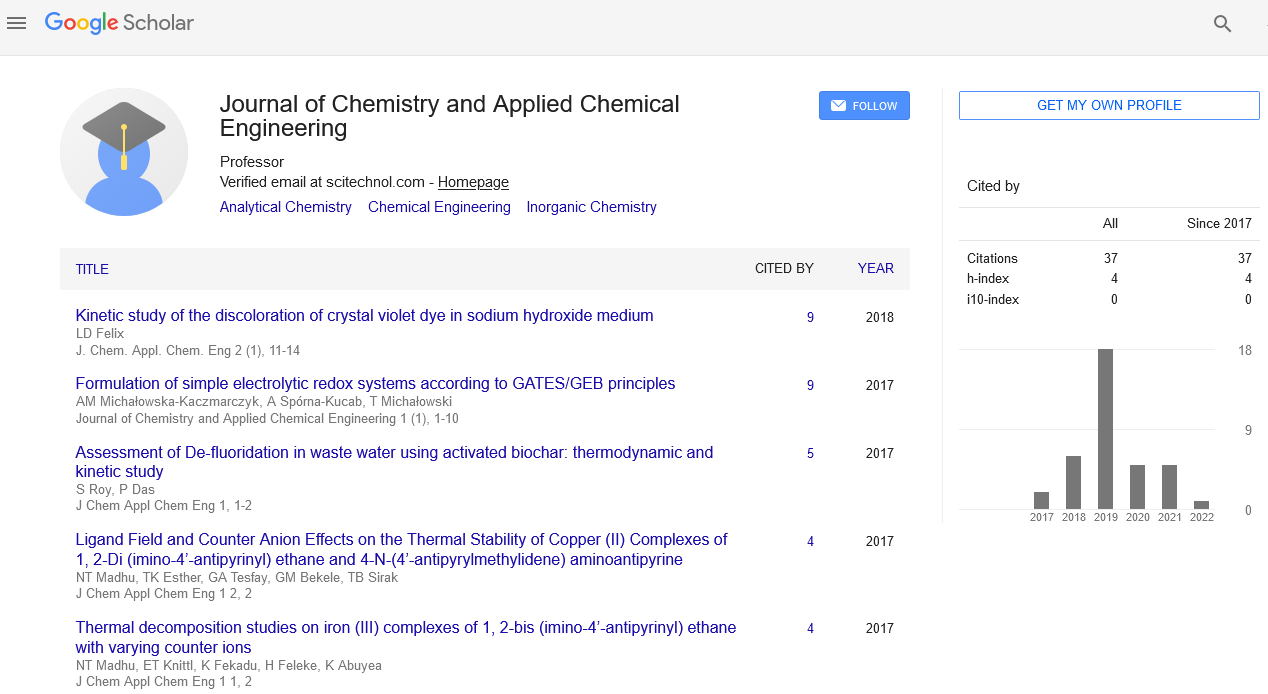Heterogeneous catalysis on oxide and carbon-based supports surpassing homogeneous catalysis for carbon-carbon bond forming reactions
M. Samy El-Shall
Virginia Commonwealth University, United States
: J Chem Appl Chem Eng
Abstract
Palladium catalyzed cross-coupling reactions represent a significant advancement in contemporary organic synthesis as these reactions are of strategic importance in the area of pharmaceutical drug discovery and development. This talk will address the development of heterogeneous Pd catalysts anchored on oxide and carbon-based supports that match the high activity and selectivity of homogeneous catalysts and also eliminate catalyst’s leaching and sintering and allow efficient recycling of the catalysts. In the first approach, strong electrostatic adsorption is used to synthesize ultrasmall (1-2 nm) Pd and the bimetallic Pd-Cu, Pd-Ni and Pd-Co catalysts on silica supports. These catalysts demonstrate very high turnover frequencies (TOF = 100,000 h-1 at 60 °C) for Suzuki coupling reactions and are easily recovered and recycled under batch reaction conditions. In the second approach, highly active larger Pd nanoparticle catalysts (3-4 nm) encapsulated within novel carbonaceous and N-doped carbonaceous TiO2 or ZrO2 support nanomaterials are developed via the laser vaporization of Ti or Zr metal organic frameworks (MOFs), respectively. The resulting hollow carbon spheres decorated with TiO2 or ZrO2 nanoparticles provide highly improved support for the Pd nanoparticles for high activity and no significant Pd leaching in the Suzuki coupling reactions. Finally, in the third approach, functionalization of the reduced graphene oxide (RGO) support by the covalent attachment of aromatic amines such as p-phenylenediamine (PPD) or benzidine (BZD) results in further enhancement of the activity of the Pd nanoparticles in the solid Pd/ (RGO-PPD) or Pd/(RGO-BZD) catalysts for the Suzuki coupling reactions with unprecedented catalytic activity showing TOF values of 408,000 h-1 and 378,000 h-1, respectively at 80 °C. The three approaches presented for the supported Pd catalysts attest to function via a heterogeneous pathway where the dispersity of Pd nanoparticles and the influence of the carbon support appear to play major roles in achieving catalytic activity that matches or exceeds that of the best homogeneous Pd catalysts.
Biography
Dr. M. Samy El-Shall is a Professor of Chemistry and Chemical Engineering at Virginia Commonwealth University. He has completed his B. Sc. (Chemistry) with Distinction at Cairo University, Egypt in 1976. Then completed his Ph.D. (Physical Chemistry) with Distinction at Georgetown University in 1985 and Postdoctoral at University of California in Los Angeles (UCLA) during 1986-1988.
 Spanish
Spanish  Chinese
Chinese  Russian
Russian  German
German  French
French  Japanese
Japanese  Portuguese
Portuguese  Hindi
Hindi 